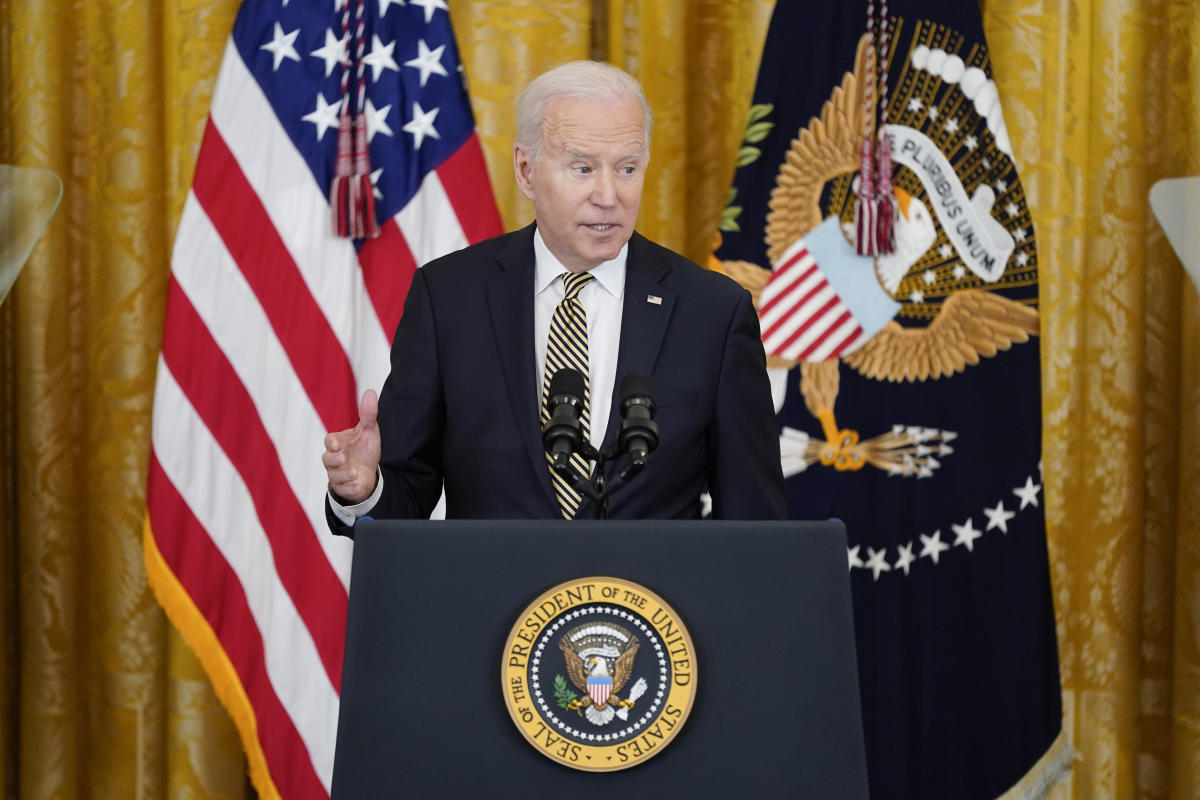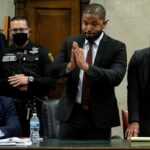
WASHINGTON (AP) — U.S. President Joe Biden and Ukraine’s Volodymyr Zelenskyy are men of different generations, countries and styles — and with very different missions.
Zelenskyy is fighting to save his nation. Biden to restore a shattered world order — without igniting a world war.
The contrasts were on vivid display Wednesday. First the Ukrainian leader delivered an impassioned plea to Congress for additional military assistance to fight off Russia’s three-week old invasion. Then came Biden, with a more technocratic address promising more arms and humanitarian assistance but making clear the limits of what the U.S. is willing to do.
Zelenskyy, 44, was vigorous though unshaven and fatigued. In military green, he appealed for lethal aid via video link from a nondescript bunker. Biden, nearly 80, was staid as he spoke of sanctions and coalition building from the made-for-television set built next to the White House.
“I’m almost 45 years old; today my age stopped when the hearts of more than 100 children stopped beating,” Zelenskyy told U.S. lawmakers. “I see no sense in life if it cannot stop the deaths.”
Speaking for 15 minutes, he invoked uniquely American moments of strife and significance: the bombing of Pearl Harbor, the Sept. 11 attacks, the quest led by Martin Luther King Jr. for civil rights. He called on Biden to be “the leader of peace.”
It marked the latest stop on Zelenskyy’s livestreamed global tour, as he seeks to portray Ukraine as defending more than just its own land and tries to elicit even tougher military and other action against Russia.
“We are fighting for the values of Europe and the world,” he told lawmakers.
Zelenskyy begged the U.S. to engage more directly to help his people — including for the U.S. to help Ukraine get Soviet-built aircraft to use against Russia and for an enforced no-fly zone over Ukraine, even if he acknowledged it was unlikely. Biden has warned that fulfilling such requests could push Russia and the U.S. — two nuclear-armed nations — into direct conflict. It’s a chance he’s not willing to take.
Biden watched Zelenskyy’s speech from the White House residence and called it “powerful.”
His own remarks — three hours later and half as long — were less lofty, delivered from a small auditorium studio to a room full of reporters. He spoke of what the U.S. can do now, stopping well short of granting all Zelenskyy sought.
Biden has spent the past several months working to align NATO allies and Group of Seven partners behind stiff economic sanctions against Russia. That began as an attempt to head off the invasion and has now shifted to an effort to ensure the conflict leaves Russia isolated and economically debilitated.
Biden ticked through the U.S. arms to come in the latest tranche of missiles, drones and bullets. He reviewed the sanctions already imposed on Russia and the humanitarian assistance flowing to Ukraine. Mostly, though, while lamenting the horrific casualties so far, he cast America’s interest in the conflict in terms of protecting democracy around the globe — rather than focusing on Ukraine itself.
“What’s at stake here are the principles that the United States and the united nations across the world stand for,” Biden said. “It’s about freedom. It’s about the right of people to determine their own future. It’s about making sure Ukraine never — will never be a victory for Putin, no matter what advances he makes on the battlefield.”
Max Bergmann, a former State Department official who is now a senior fellow at the Democratic-leaning Center for American Progress, said that despite their general alignment, Biden and Zelenskyy are playing very different roles.
For Zelenskyy, “this is an existential threat to him. The very survival of Ukraine is at stake here.” The Ukrainian leader, he said, shows “determination and desperation.”
Biden, he said, is showing empathy for Zelenskyy’s position. “This isn’t just moving chess pieces around the chess board. This is about standing up for a country that’s fighting for freedom.”
But Biden, he said, has limits. “There’s going to be a difference and we just have to understand that. That’s part of what being the leader of the free world is about, which is weighing those competing demands.”
White House press secretary Jen Psaki acknowledged the divergent interests,
“If we were President Zelenskyy, we would be asking for everything possible as well,” Psaki said. “But how President Biden makes decisions is through the prism of our own national security.”
Daniel Fried, a former U.S. ambassador to Poland, says that Biden’s age — and his having come of age during the Cold War — helps him understand the stakes in a different way from the Ukrainian leader.
“Biden does not look at Zelenskyy with chilly indifference,” Fried said. “He grew up with those lessons.”
“The Ukrainians have backing. And I think they feel it. But very hard tests await.”
___
AP writer Colleen Long contributed to this report.
___
EDITOR’S NOTE — Miller and Megerian cover the White House for The Associated Press.




